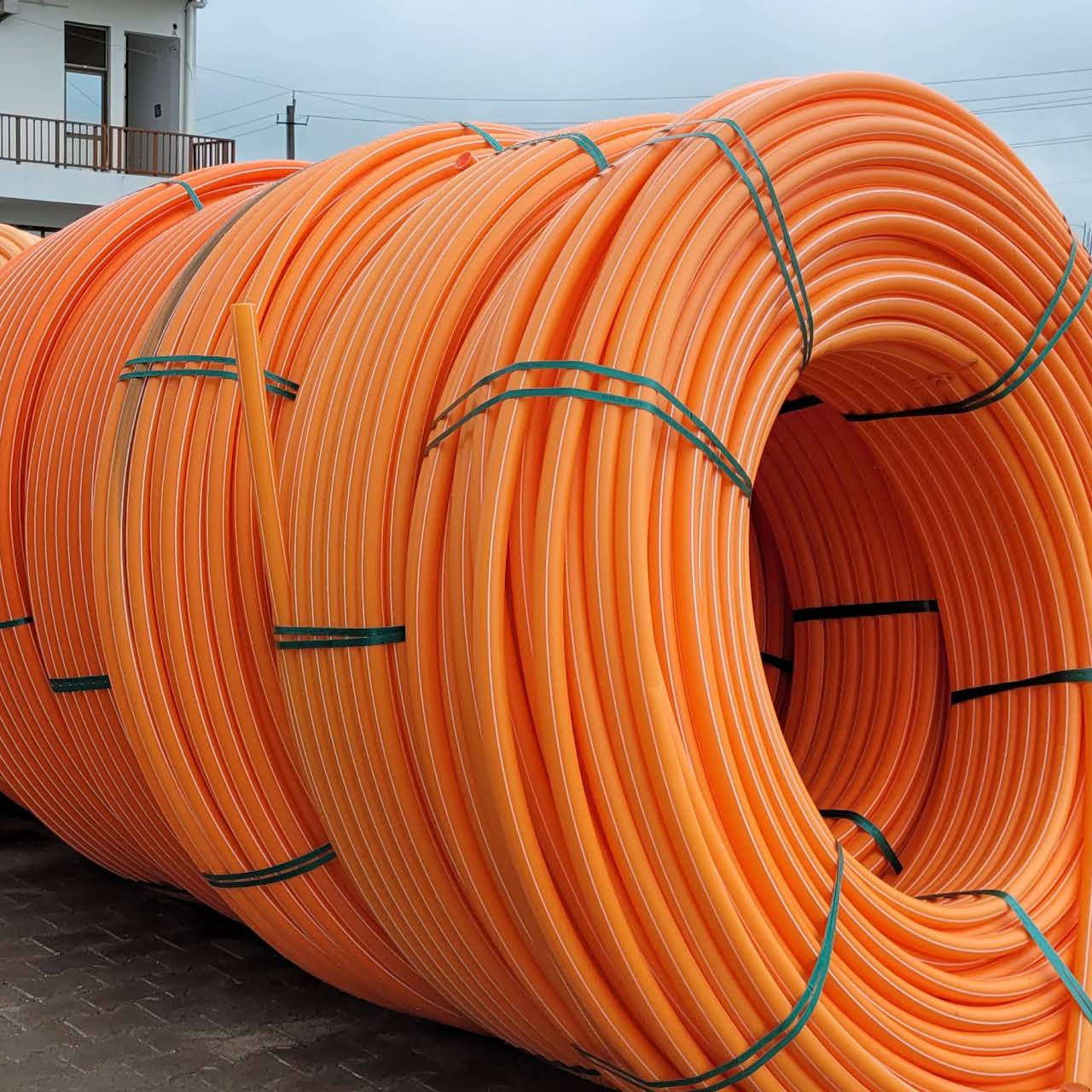FAQs About Texas hdpe pipe manufacturer and Their Products
Comprehending the Secret Benefits of HDPE Pipeline for Water and Wastewater Management
Using HDPE pipeline in water and wastewater monitoring presents numerous advantages that warrant consideration. Its exceptional resilience and long life-span make it a recommended option for many tasks. In addition, the product's resistance to deterioration and chemical damages enhances its reliability in different settings. The benefits expand past just longevity and resistance. hdpe pipe in stock Midland TX. Discovering its cost-effectiveness and ecological influence discloses even much more compelling factors for its prevalent fostering in modern-day facilities
Exceptional Resilience and Long Life

HDPE pipe sticks out for its phenomenal longevity and longevity, making it a favored option in water management systems. Created from high-density polyethylene, these pipelines can withstand significant pressure and anxiety, making sure reliable performance gradually. Their durable nature allows them to withstand severe ecological conditions, consisting of temperature level changes and dirt movements, which can create other materials to stop working.
The life expectancy of HDPE pipes commonly surpasses 50 years, supplying an economical service for districts and markets alike. Additionally, the material's light-weight homes simplify setup, reducing labor expenses and durations. This durability reduces the demand for regular repairs or replacements, further improving its economic appeal.
In water administration applications, the reliability of HDPE pipelines means less disruptions and improved service connection, making them integral to lasting framework growth. The mix of durability and durability solidifies HDPE's role as a foundation in reliable water management services.

Resistance to Corrosion and Chemical Damages
While many products give in to rust and chemical damage with time, HDPE pipelines show remarkable resistance, making them suitable for various water administration applications. This durability stems from the molecular structure of high-density polyethylene, which is naturally non-reactive and does not rust like steels or deteriorate from exposure to severe chemicals. Because of this, HDPE is highly reliable in atmospheres with hostile substances, such as wastewater systems that may contain acids, bases, and organic solvents.
In addition, HDPE pipes can endure environmental elements such as soil level of acidity and saline problems, better boosting their suitability for diverse applications (American Plastics HDPE Pipe for Oilfield). Their capacity to preserve structural integrity over time minimizes the risk of leakages and failings, which is essential in guaranteeing the security and integrity of water distribution and wastewater management systems. The resistance to corrosion and chemical damage substantially contributes to the overall efficiency and long life of HDPE piping remedies.
Cost-Effectiveness and Economic Advantages
When considering the financial effects of water management systems, the cost-effectiveness of HDPE pipelines becomes apparent. These pipelines use lower installment and upkeep costs contrasted to standard materials like steel or concrete. Their lightweight nature simplifies transportation and setup, resulting in decreased labor expenses. In addition, HDPE pipelines show a lengthy life-span, typically surpassing half a century, which equates to fewer replacements and lasting savings.
The resistance of HDPE to deterioration and chemical damages lessens the need for expensive fixings and substitutes. The pipelines additionally sustain effective water circulation, lowering energy prices connected with pumping systems. By alleviating leaks and water loss, HDPE pipes add to substantial economic benefits for communities and industries alike. On the whole, the first financial investment in HDPE piping can yield significant economic returns over the life expectancy of the water monitoring system, making it a prudent choice for sustainable infrastructure growth.
Ecological Sustainability and Minimized Influence

Convenience and Adaptability in Installation
Due to their unique residential properties, HDPE pipelines offer remarkable versatility and versatility in installment, making them suitable for a vast array of applications. Their lightweight nature permits less complicated handling and transportation, minimizing labor prices and installation time. HDPE pipelines can be curved and formed to fit various surfaces and project demands, which is particularly valuable in challenging environments.
Additionally, their resistance to deterioration and chemical damage enables for installment in diverse settings without the need for specialized protective coatings. The capacity to fuse joints produces a constant, leak-free system, enhancing the general stability and integrity of the installment. HDPE's versatility additionally accommodates ground movement, decreasing the danger of damages in areas susceptible to moving dirt. Generally, these features make HDPE pipelines not only versatile but additionally a favored selection for water and wastewater administration systems.
Regularly Asked Inquiries
Exactly How Does HDPE Pipe Contrast to PVC in Water Monitoring Applications?
HDPE pipe provides exceptional versatility, resistance to rust, and resilience contrasted to PVC. Its lighter weight helps browse around this site with easier installation, while its long life-span decreases substitute costs, making HDPE a underground water line preferred option in water monitoring applications.
What Is the Lifespan of HDPE Piping Under Common Problems?
Under typical problems, HDPE pipelines can have a life-span varying from 50 to 100 years. Their durability and resistance to rust contribute to their long-term performance in different applications, making them a trusted selection for infrastructure.
Are HDPE Water Lines Recyclable After Their Life Span?
Yes, HDPE pipelines are recyclable after their solution life. American Plastics HDPE Pipe for Oilfield. They can be refined and repurposed into new items, greatly minimizing ecological effect and advertising sustainability within the sector, making them a green option for piping remedies
What Is the Installment Process for HDPE Water Lines?
The setup procedure for HDPE pipelines involves website preparation, trenching, pipeline blend or mechanical signing up with, backfilling, and pressure screening. Appropriate methods guarantee a long lasting and effective system for delivering water and wastewater successfully.
Can HDPE Piping Be Used for Both Safe And Clean and Non-Potable Water Equipments?
Yes, HDPE pipelines can be made use of for both potable and non-potable water systems. Their versatility, toughness, and resistance to corrosion make them ideal for different applications, ensuring secure and effective transportation of water in various contexts.